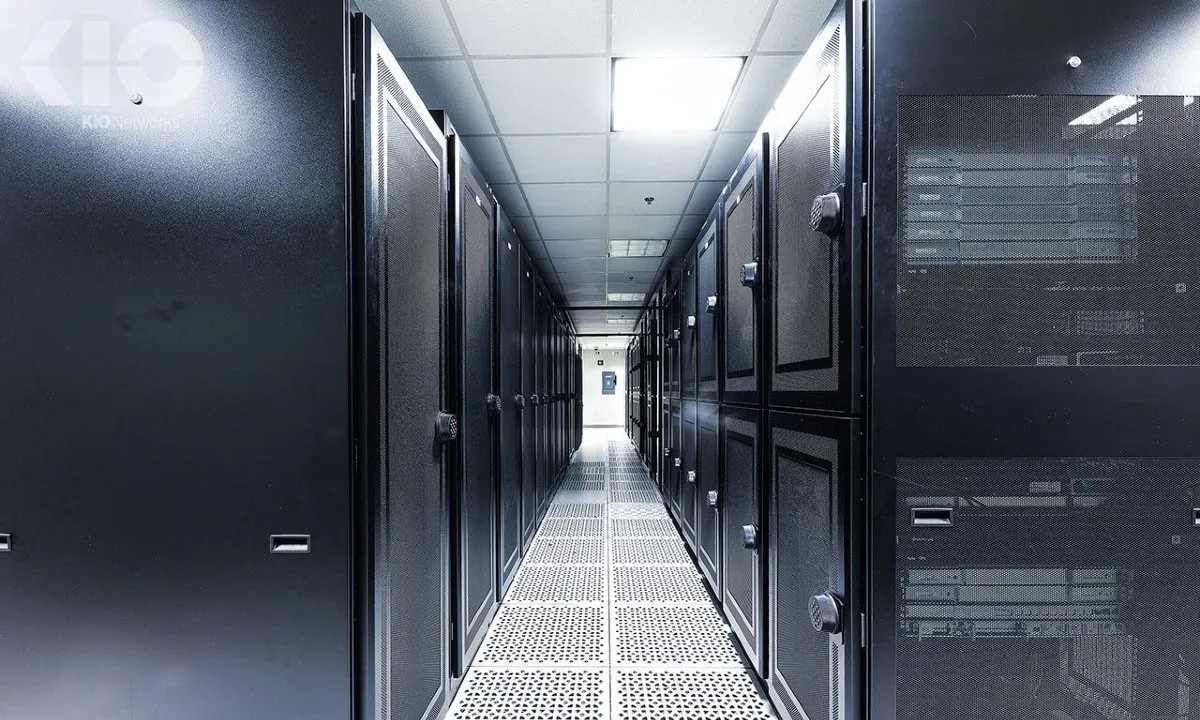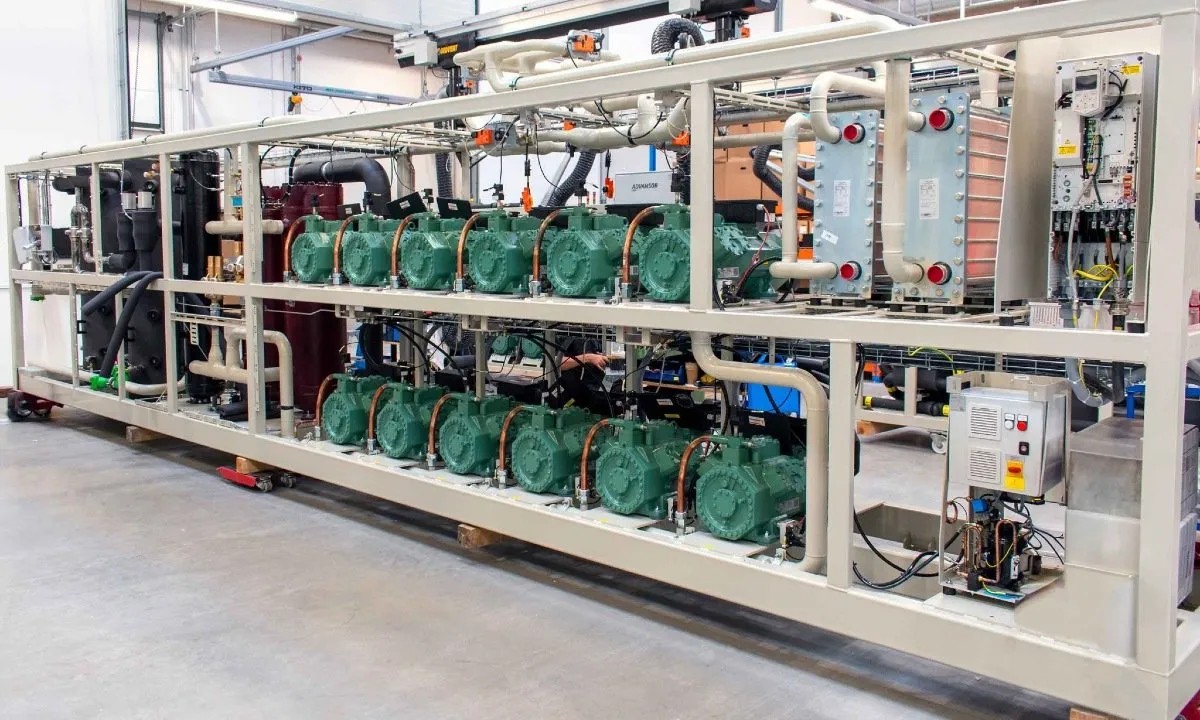KIO Networks says its new Valencia data center is Spain’s first to use 100% natural refrigerants
March 18, 2024

International information technologies provider KIO Networks announced in February 2023 that its new data center in Valencia, Spain, would be the country’s first to use 100% natural refrigerants, and now details of the CO2 (R744)-based cooling and air-conditioning systems have been shared by Danish OEM Advansor in a new case study.
The system consists of two of Advansor’s medium-temperature SteelXL units and three MiniBooster units. In total, it provides 1.3MW (369.6TR) of cooling capacity for the servers and 150kW (42.7TR) of cooling capacity for the data center’s air-conditioning. Waste heat produced by the data center’s cooling equipment will be recovered and sold to the local district heating system for use in nearby buildings.
To improve system efficiency, Advansor has added permanent magnet motors to all 12 of the system’s compressors, which it said will ensure an additional energy savings of 7–8%.
Construction of the 1,000m2 (10,763ft2) data center began in February 2023, and KIO Networks said in a February 2024 blog post that it expects to begin operations “in just a few months.”

Technical support
To ensure the equipment was “perfectly adjusted to the climate and surroundings,” Advansor conducted onsite commissioning, which it estimates will result in energy savings of up to 18%. The manufacturer also provided technical training for KIO Networks’ technicians at its factory and training center in Denmark.
“The training was conducted in Spanish by our highly experienced after sales engineers,” explained the manufacturer. “The training guided the technicians through real working situations and provided the know-how of the functions and structure of the solution for the new data center.”
A resilient system
Data centers are grouped into four different tiers, with tier 4 being the highest in terms of expected uptime. Tier 4 data centers are built to be “completely fault tolerant,” have independent paths for power and cooling and require “redundancy for every component” according to Hewlett Packard Enterprise (HPE). Per HPE, these data centers have an expected uptime of 99.995% and an annual downtime of just 26.3 minutes.
“To ensure resilience, we provided a fully redundant solution with back-up controllers and extra capacity,” said Advansor. “The solution also includes the Advansor Emergency Cooling Unit[, which] keeps pressure on the system in case the rack stops due to an emergency or power outage.”
The Emergency Cooling Unit prevents loss of refrigerant in the case of system failure, the manufacturer added.
CO2 in data centers
As the use of HFCs is phased down under the Kigali Amendment and various regional and national legislation – such as the EU F-gas Regulation and the U.S. American Innovation and Manufacturing (AIM) Act – an increasing number of end users, including data centers, will have to transition to natural refrigerants like CO2.
To meet this growing demand, more manufacturers are entering the market for natural refrigerant-based refrigeration technologies for data center applications.
For example, in December 2022, U.S.-Canadian manufacturer M&M Carnot, acquired by Johnson Controls in June 2023, announced its plans to launch higher-capacity CO2 cooling units for data centers.
Earlier that year, the manufacturer published a white paper to help owners of data centers replace high-GWP refrigerants with CO2 alternatives.
According to M&M Carnot, R744-based systems can reduce a data center’s energy consumption and costs as well as its environmental impact. In the report, M&M Carnot states that a CO2 cooling system is 12 times more economical than a system using HFCs and that it can save up to 90% more in energy consumption than conventional systems.
Sustainable data centers
As the company aims to be the most sustainable provider of cloud services and solutions in Spain, using natural refrigerants and reusing data center waste heat are key focuses for KIO Networks.
“Natural refrigerants like CO2 are the only refrigerants that are non-toxic, do not destroy the ozone layer, do not harm our drinking water and have a global warming potential of 1,” explained Advansor in its case study. “It was therefore the perfect choice for KIO Networks’ new data center.”
“Servers within a data center generate a lot of heat, requiring a lot of cooling, [and] the cooling process in turn also generates a lot of excess heat,” the OEM added.
This integrated approach to all-in-one “climate solutions” has been a major focus for Advansor in recent years.
KIO Networks is also focused on using 100% renewable power, and, at its new Valencia data center, a total of 71 geothermal wells were installed to provide renewable energy for the cooling systems to further reduce its environmental impact.


